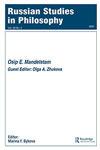Boris N. Chicherin on Western Liberalism and Its Shortcomings
IF 0.1
4区 哲学
Q4 Arts and Humanities
引用次数: 1
Abstract
ABSTRACT This article examines the criticisms that Chicherin directed at the classical Western liberalism that emerged from the works of John Locke, Claude-Adrien Helvétius, Baron d’Holbach, and Jean-Jacques Rousseau, the criticisms that can also be directed at modern Western liberalism. Following the early nineteenth-century German philosophers (Fichte, Hegel), Chicherin proves the falsity of liberalism’s philosophical foundations and, above all, the fallacy of its individualism. The latter assumes that the individual is not just independent of society and the state but also primary in relation to them, as well as a limited understanding of freedom that is reducible to an absence of external restrictions on human activity. As Chicherin shows, the stability of a state built on these principles can be ensured only by manipulating the consciousness of its citizens such that they are satisfied with their rulers. The Russian version of liberalism created by Chicherin and his followers is based on an understanding of the individual’s dependence on society’s spiritual wholeness, as well as on an understanding of freedom as man’s spiritual inner quality manifested primarily in his ability to create high culture. Russian liberalism views the state as a value equal to and complementary to the value of individual freedom, defining it as a way of organizing the life of a people that arises naturally in history and is independent of the will of individuals.论西方自由主义及其缺陷
摘要本文考察了洛克、赫尔维提、霍尔巴赫、卢梭等人对契切林对西方古典自由主义的批判,这些批判也可以指向现代西方自由主义。继19世纪早期的德国哲学家(费希特、黑格尔)之后,奇切林证明了自由主义哲学基础的虚假性,最重要的是,证明了其个人主义的谬误。后者认为,个人不仅独立于社会和国家,而且是与社会和国家相关的主体,对自由的理解有限,可以归结为对人类活动没有外部限制。正如奇切林所表明的那样,只有通过操纵公民的意识,使他们对统治者感到满意,才能确保建立在这些原则基础上的国家的稳定。奇切林及其追随者创造的俄罗斯版自由主义是基于对个人对社会精神完整性的依赖的理解,以及对自由作为人的精神内在品质的理解,这种精神内在品质主要表现在他创造高级文化的能力上。俄罗斯自由主义将国家视为与个人自由价值平等和互补的价值,并将其定义为一种组织人民生活的方式,这种生活在历史上自然产生,独立于个人意愿。
本文章由计算机程序翻译,如有差异,请以英文原文为准。
求助全文
约1分钟内获得全文
求助全文
来源期刊

RUSSIAN STUDIES IN PHILOSOPHY
PHILOSOPHY-
CiteScore
0.10
自引率
0.00%
发文量
14
期刊介绍:
Russian Studies in Philosophy publishes thematic issues featuring selected scholarly papers from conferences and joint research projects as well as from the leading Russian-language journals in philosophy. Thematic coverage ranges over significant theoretical topics as well as topics in the history of philosophy, both European and Russian, including issues focused on institutions, schools, and figures such as Bakhtin, Fedorov, Leontev, Losev, Rozanov, Solovev, and Zinovev.
 求助内容:
求助内容: 应助结果提醒方式:
应助结果提醒方式:


